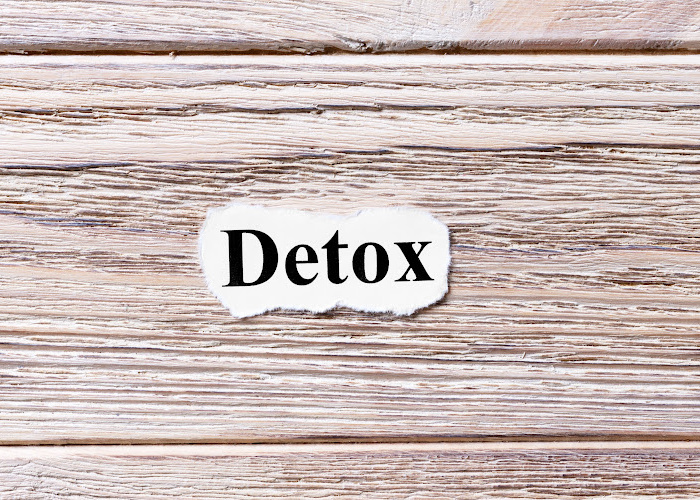It's crucial to know that students with autism and ADHD need special study strategies. Autism…

Can Detox Make a Difference? Exploring the Impact of Heavy Metal Detox on Autism Symptoms
As awareness surrounding autism spectrum disorder (ASD) grows, so does the interest in finding ways to manage and potentially improve symptoms experienced by individuals with this condition. Central to this exploration is the concept of heavy metal detox for autism, a process aimed at detoxifying the body from heavy metals that some researchers believe could have a connection to autism symptoms. Yet, the question remains: can detox methods be not only safe but also genuinely helpful for those with autism?
In this compelling journey to understand the intricate relationship between our body’s toxic load and autism, we investigate various effective ways to remove heavy metals in autism. This may include dietary changes, supplementation, or even medical interventions such as chelation therapy, each with their potential benefits and points of caution. Through a closer look at recent research and expert insights, we aim to shed light on whether heavy metal detox could indeed make a tangible difference for those on the autism spectrum.

Understanding Heavy Metal Toxicity in Children with Autism
The increasing prevalence of autism spectrum disorders has led to a quest for understanding its etiology, with heavy metal toxicity coming into focus. Various environmental factors have been associated with autism, but heavy metals such as mercury hold a particularly controversial and critical place in research. In seeking answers and better health outcomes for children affected by autism, the exploration of heavy metal toxicity is a pressing concern for many parents and health care professionals.
The Connection Between Heavy Metals and Autism
Research is investigating how exposure to certain heavy metals, notably mercury, correlates with the incidence of autism spectrum disorders. Mercury toxicity and autism seem intertwined as they share neurobiological effects on developing brains. Heavy metals are known neurotoxins that can disrupt normal neurological development, potentially leading to the behavioral and cognitive deficits seen in autism. The role of environmental toxins in health becomes even more important when considering the sensitive and critical periods of child development.
Identifying Symptoms of Heavy Metal Toxicity in Autism
Signs of heavy metal toxicity in children can often mimic or exacerbate symptoms associated with autism, making it a complex condition to diagnose. Common symptoms might include:
- Speech and language difficulties
- Cognitive delays
- Behavioral changes
- Sensory integration issues
- Gastrointestinal disturbances
These shared symptoms make it imperative for parents and clinicians to consider heavy metal toxicity as part of a comprehensive diagnostic and treatment approach for children with autism.
Heavy Metal Testing for Children with Autism
Determining the level of exposure to heavy metals can be a crucial step in managing autism symptoms. Heavy metal testing for children with autism usually involves analyzing hair, blood, or urine samples to evaluate the body’s burden of metals. Reliable methods such as Mass Spectrometry and Atomic Absorption Spectroscopy are used in these assessments. Once identified, healthcare providers may consider treatments like chelation therapy for autism, a process that binds heavy metals in the body and helps to excrete them.
It is important to consult with a healthcare professional who is experienced in dealing with the complexities of heavy metal exposure and autism before initiating any treatment, including chelation therapy, to avoid potential risks and ensure the safest approach for the child’s health and well-being.

Heavy Metal Detox for Autism: Methods and Efficacy
As the prevalence of autism spectrum disorders continues to rise, so does the exploration into various therapeutic approaches. Among these, detoxification methods for autism have gained attention, particularly the role of heavy metal detox in potentially alleviating symptoms associated with the condition. Parents and healthcare providers are increasingly considering both holistic approaches to heavy metal detox and natural remedies for heavy metal detox as adjunctive treatments.
One widely discussed method is chelation therapy. This biomedical treatment involves administering chelating agents to bind with heavy metals in the body, such as mercury, and assist in their excretion. Despite its potential, chelation must be approached with caution and performed under medical supervision, as it carries risks and possible side effects.
- Clinical trials have shown variances in effectiveness, and it’s essential to have a clear diagnosis of heavy metal toxicity before commencing treatment.
- Individuals require thorough screening to tailor the therapy according to their specific health needs and to mitigate any adverse reactions.
Aside from chelation, there are numerous natural remedies gaining popularity due to their gentle nature and perceived benefits:
- Dietary approaches that emphasize the removal of processed foods and the inclusion of foods known to support detoxification processes, like cilantro and chlorella.
- Supplements such as glutathione, known for its antioxidant properties and ability to support the elimination of toxins.
- Herbal remedies that purportedly assist in gently detoxifying the body without the harsh effects sometimes associated with other methods.
While these alternative methods are generally considered safer than chelation, it’s paramount to consult with healthcare professionals before starting any new treatment plan. It’s equally important to note that studies on the efficacy of these methods vary widely and often lack the rigor of conventional medical research.
While the quest for effective detoxification methods for autism continues, it’s essential for families to weigh the potential benefits against the risks and to maintain realistic expectations regarding treatment outcomes. A collaborative approach that includes medical input, monitoring, and a focus on individual responses to treatment is crucial in the management of autism symptoms.
Conclusion
In reviewing the varied interventions and strategies explored throughout this discourse, it becomes clear that the sphere of heavy metal detox for autism offers promising avenues. Particularly, natural remedies beckon with their gentle footprint and alignment with the body’s innate healing rhythms. These alternative therapies, while standing on the periphery of conventional medicine, have captured the attention of those seeking a more organic path to wellness.
Natural Remedies for Heavy Metal Detox and Their Potential
The realm of natural remedies, enriched by the wisdom of ancestral practices and contemporary holistic wellness, provides a diversified toolkit for those exploring heavy metal detox. Supplements such as activated charcoal, cilantro, and chlorella are lauded for their detoxifying properties, offering a beacon of hope for families navigating the complexities of autism spectrum disorders.
Personal Stories: How Detoxification Methods for Autism Changed Lives
Amidst the clinical trials and scientific scrutiny, it is the personal narratives that resonate most deeply, painting a vivid tableau of transformation and resurgence. Parents and caregivers, buoyed by the gradual yet tangible progress they observe in their children, attest to the life-altering impact of incorporating detoxification protocols silent testaments to the adage that every individual’s journey is unique.
Fostering a Holistic Approach to Managing Autism Symptoms
As we look to the horizon, it becomes increasingly imperative to champion a more integrative perspective to autism symptom management a holistic tapestry interweaving medical knowledge with a quilt of alternative practices. Such an approach does not dismiss the value of established treatments; rather, it invites a plurality of voices and modalities, all contributing to the overarching goal of personalised care and improved quality of life for those on the autism spectrum.
FAQs
Can a heavy metal detox have an impact on autism symptoms?
Yes, some believe that a heavy metal detox might make a difference in autism symptoms. Detoxifying the body from heavy metals is thought to potentially relieve certain symptoms, though more research is needed to conclusively prove efficacy.
What is the connection between heavy metals and autism?
Research suggests that there may be a link between exposure to heavy metals like mercury and the development of autism symptoms. These toxic metals can potentially impact neurodevelopment and exacerbate symptoms of autism.
What are the symptoms of heavy metal toxicity in children with autism?
Symptoms of heavy metal toxicity in children with autism can vary but often include cognitive difficulties, speech and language delays, gastrointestinal issues, and behavioral changes. Parents should consult healthcare professionals if they suspect heavy metal toxicity.
How are heavy metals tested for in children with autism?
Heavy metal testing for children with autism typically involves analyzing blood, urine, or hair samples. These tests help to identify the presence and concentration of heavy metals in the body, enabling appropriate treatment decisions.
What detoxification methods are suggested for autism?
There are various detoxification methods for autism, including chelation therapy, which uses agents to bind and remove heavy metals from the body, as well as holistic approaches and natural remedies like specific diets, supplementation, and lifestyle changes that support the body’s own detoxification processes.
Is chelation therapy safe and effective for autism?
Chelation therapy is a conventional approach used to remove heavy metals, including mercury toxicity from the body. While some reports suggest it can alleviate symptoms of autism, it’s important to note that chelation therapy has potential risks and should only be performed under medical supervision. Its safety and efficacy remain a topic of debate and ongoing research.
Can natural remedies help with heavy metal detox in children with autism?
Some suggest that natural remedies such as certain foods, herbs, and supplements can support detoxifying the body from heavy metals. However, it’s essential to approach these remedies with caution and seek professional guidance as not all are backed by scientific evidence, and some may interact with other treatments or have side effects.
Are there any risks associated with heavy metal detox for autism?
Yes, there are potential risks, especially with more invasive methods such as chelation therapy, which can cause side effects or deplete essential minerals. Holistic and natural methods may also carry risks if not properly administered. Consulting a healthcare professional is crucial before starting any detox program.



This Post Has 0 Comments